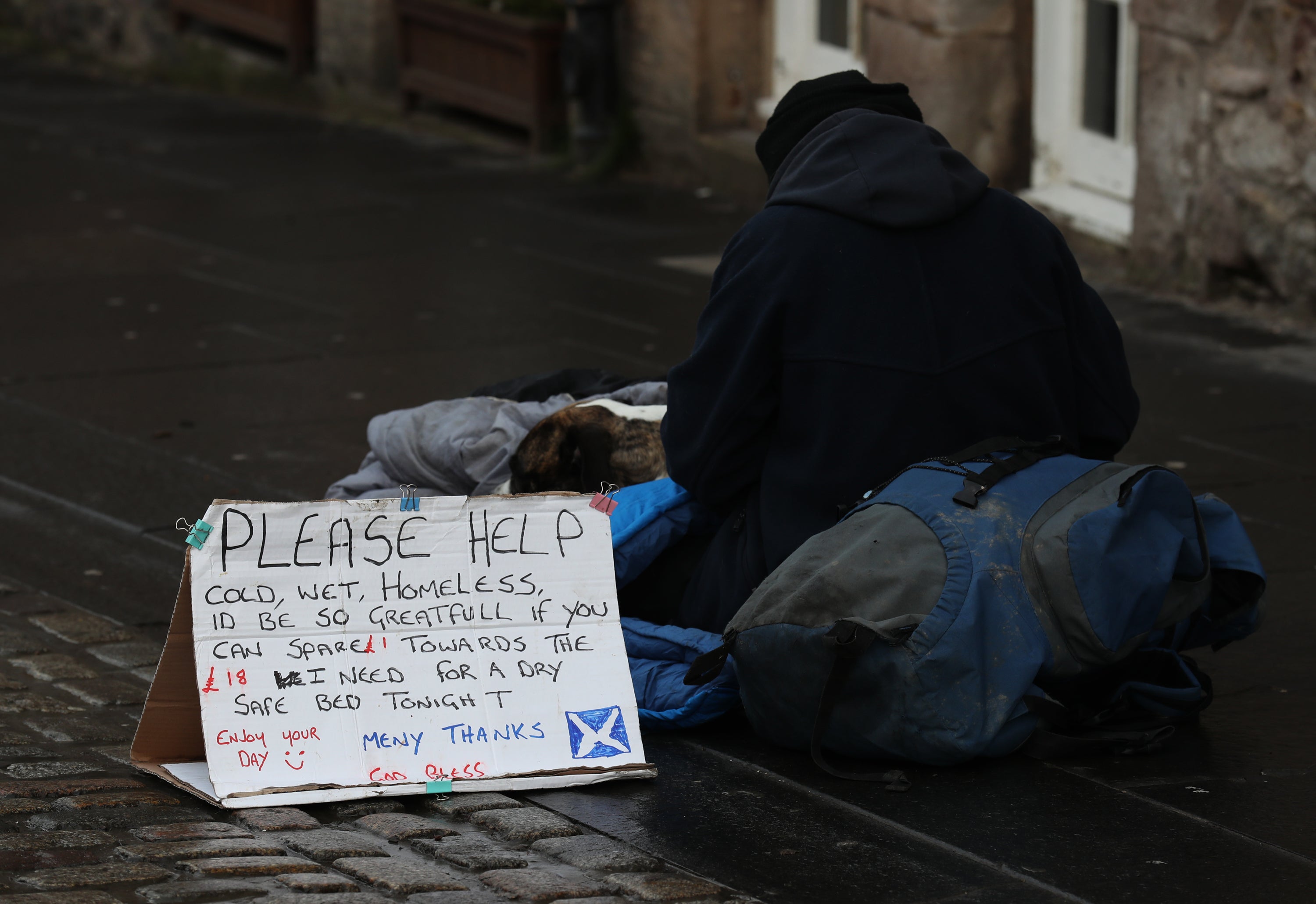Homeless deaths in Scotland rose to an estimated 256 in 2020
Six council areas recorded no homeless deaths during the year.

Your support helps us to tell the story
From reproductive rights to climate change to Big Tech, The Independent is on the ground when the story is developing. Whether it's investigating the financials of Elon Musk's pro-Trump PAC or producing our latest documentary, 'The A Word', which shines a light on the American women fighting for reproductive rights, we know how important it is to parse out the facts from the messaging.
At such a critical moment in US history, we need reporters on the ground. Your donation allows us to keep sending journalists to speak to both sides of the story.
The Independent is trusted by Americans across the entire political spectrum. And unlike many other quality news outlets, we choose not to lock Americans out of our reporting and analysis with paywalls. We believe quality journalism should be available to everyone, paid for by those who can afford it.
Your support makes all the difference.The number of homeless deaths in Scotland rose to an estimated figure of 256 in 2020, an increase of 40 from the previous year.
Deaths among people who were experiencing homelessness were particularly high between May and September.
National Records of Scotland (NRS) released the annual figures on Tuesday, showing West Dunbartonshire Inverclyde and South Ayrshire had the highest rates of homeless deaths in Scotland.
Six council areas recorded no homeless deaths during the year.
Julie Ramsay, head of vital events at NRS, said: “While these statistics help our understanding of this issue, it’s important to understand these figures are currently experimental and the methodology is under development.
“The estimated number of people dying while experiencing homelessness has risen consistently over the past three years.
“Improvements to the data sources and the ability to identify whether a person was homeless may partly explain some of this increase since 2017.”
Housing Secretary Shona Robison responded to the figures, saying the Scottish Government is looking to strengthen laws around homelessness.
These findings are concerning
She said: “Every single one of these deaths is a tragedy. While it is hard to measure homeless deaths precisely, these findings are concerning.
“This shows why we must go even further in our efforts to end homelessness and rough sleeping for good.
“We are investing more than £50 million over this parliamentary term to end homelessness and rough sleeping, including support for rapid rehousing and Housing First.
“This builds on the £37.5 million we have already given to local authorities to provide more people with settled accommodation.”
Scottish Conservative housing spokesman Miles Briggs called for an urgent review of access to healthcare for people who are homeless or rough sleeping.
He said: “These figures should be a source of shame for the SNP.
“They have failed year after year to tackle a rise in homeless deaths on our streets and the situation is only getting worse.
“The majority of these deaths are directly linked to drugs, which is why we must guarantee those who need treatment will have access to it.
“I call on everyone to support Scottish Conservative plans for a Right to Recovery Bill.”
Jon Sparkes, chief executive of the charity Crisis, said healthcare providers should act to help those who are homeless.
He said: “We need to learn from these failings and put in place measures to stop this from happening again.
“We’ve long known how damaging homelessness can be for someone’s health and it is vital that we act now to prevent people from losing their homes.
“That means public services, including health bodies, asking about someone’s housing situation, then acting to help if they need it.”